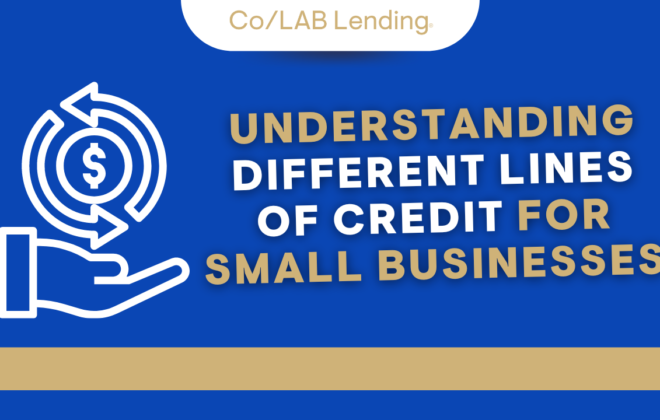Does Pre-Approval Hurt Your Credit Score? Uncover the Truth
.
Are you considering buying a home soon? If so, it’s important to understand the role your credit score can play in the process.
One of the first questions that real estate agents will ask a homebuyer when they start working together is, ” Do you have a mortgage preapproval yet?”
Many people are hesitant to get preapproved for a mortgage because they are afraid of how it might affect their credit score. This is understandable, as your credit score is an important part of getting approved for a loan. The good news is that getting preapproved for a mortgage or home loan doesn’t have to hurt your credit score—in fact, it can even save you money in the long run. Let’s look at why this is and how you can get pre-approved without impacting your credit score.
Mortgage Pre-Approval: What You Need to Know
A mortgage preapproval is the first step in the home financing & home buying process. It is a stamp of approval from a loan officer or lender. A mortgage preapproval letter will give you the following information, which will be shared with your real estate agent and the sellers of the homes you want to buy:
- How much you can borrow
- An estimate of the interest rate you will pay for
- The mortgage term
It is common for homebuyers to confuse a mortgage pre-approval with a pre-qualification. A pre-qualification is the earliest stage of the research process when someone is just looking for general guidance on what loan options and payments are available to them based on “what if” scenarios and information.
When a buyer has determined they do want to search, view, and put an offer in on a home, is when a pre-approval is required. A pre-approval always involves a credit check and review, combined with providing other information to the loan officer, that will help them give you guidance and options for when you do find the right home. Although not all loan officers will collect documents during the preapproval process, we highly recommend that you submit your documentation at this stage to ensure the least amount of surprises and errors down the road.
The Process: What Happens When You Get Preapproved?
When you get pre-approved for a mortgage loan with a mortgage lender or mortgage broker, they typically do a “soft pull” of your credit report that does not affect your overall score. A soft pull also does not show up on any other lenders’ reports so when you go shopping for rates later on down the line it won’t hurt you. The purpose of this inquiry is simply to verify basic information such as how much debt you have, the monthly payments, and the overall financial health of your credit so that the lender can determine an appropriate loan amount for the borrower. As long as borrowers keep their debt-to-income ratio below 45%, they should have no problem qualifying for most loans.
If you would like to see the types of questions that will be asked for a pre-approval, click the link here and walk through our mortgage pre-approval application.
FAQs: Questions You Might Have When Applying:
- What is your current address and all addresses for the past two years?
- Are you currently employed and by who?
- How are you paid?
- Do you pay or receive any child support or alimony?
Your answers to these questions help Loan officers determine debt-to-income ratios by calculating how much monthly income they can use and then multiplying that number times the loan products allowed ratio. Then they will subtract all of your combined monthly payments from the credit report, with the remaining number being the mortgage amount or mortgage payment that you will be qualified for. Here is an example of this calculation in action:
Mortgage Pre-approval Calculation Example
- Borrower’s gross monthly income: $10,000
- Maximum debt-to-income ratio: x 45%
- Total monthly payments allowed: $4,500
- Less combined monthly payments from the credit report: $2,300 (broken down below)
- Car pmt: $600
- Credit card 1: $300
- Credit card 2: $400
- Student Loan pmts: $700
- Co-signed car loan pmt: $300
Amount borrower will be qualified for: $4,500 – $2,300 = $2,200
This means that the borrower must find a home where the payment totals $2,200 for the principal, interest, taxes, insurance, and mortgage insurance. Most loan officers will give you a price range to look at houses within, but keep in mind that taxes and insurance can vary between homes, so watching how each possible home’s information can change the payment is a smart thing to do.
Pro Tip: It is worth noting that each loan program (Conventional, FHA, VA, USDA, etc.) sets different debt-to-income ratios, with 45% being a middle-range ratio. Therefore, if you are not satisfied with the amount that you have been qualified for, a different lender, especially a mortgage broker could have more options that can help you qualify for more homes.
The Advantages of Getting Preapproved
Getting preapproved before beginning the search process can save buyers both time and money in the long run by helping them narrow down their search to only properties they know they can afford. It also allows buyers to move quickly when they find their dream home since they already have the first steps of financing in place; this may be especially helpful in competitive markets where homes don’t stay on the market very long. Buyers who take this approach may even be able to negotiate better terms due to being ready with proof of funds when submitting offers, which could potentially save them thousands over time thanks to lower interest rates or fees associated with closing costs or other services rendered by lenders or brokers.
Understanding the Dynamics of Credit Scores
It’s important to understand that your credit score is constantly changing as it reflects information from your credit report. Credit scores range from 300-850 and are based on five core factors: payment history, credit balances, length of credit history, types of accounts used, and recent inquiries or new accounts opened. Of these five factors, payment history and amount owed account for 65%. This means that if you have been paying your bills on time and keeping your balances low, then your payment history and amounts owed will be good indicators of a strong credit rating.
Credit Scores Are Constantly Changing
The second thing to understand is that credit scores are constantly changing, and they are more impacted by payment history (mortgage payments being one of these), credit balances, and maintaining a strong and active credit history than soft or hard inquiries. That means that a few credit inquiries over the course of six months won’t make an impact on your score—even if those inquiries are for mortgages!
What is a good Credit Score?
One of the most well-known credit terms is the FICO Score, created by the Fair Isaac Corporation. Most lenders use this model to determine a borrowers credit worthiness, where scores can range from 300 – 850. Generally, a FICO above 680 is considered a good score. It is important to note that although above 680 is considered good, someone with a 680 score will not receive the same interest rate and mortgage payment as someone with a 780 score. Both Fannie Mae & Freddie Mac, who determine the countries’ lending standards, follow tiers that change the cost and interest rates at the following credit score ranges:
- 760 + scores – receive the lowest interest rates and mortgage insurance
- 740- 759
- 700 -739
- 680 – 699
- 640 – 679
- 620 – 639
Each score range listed above has the potential, depending on the loan product, to change the interest rate and mortgage insurance premium that a borrower is offered. Therefore, it is important to continue to monitor and improve your credit score at all times.
How to Improve Your Credit Score
One of the most important steps for any homebuyer is to understand their credit history and score. Suppose a lower score leads to financial difficulties in acquiring a mortgage. In that case, buyers can work with a credit counseling service, pay down debt or begin monitoring their credit score with services like Credit Karma. All these options can help lower the cost of borrowing with new debt and improve your ability to get approved going forward. Additionally, learning from mistakes made in the past helps in preventing future credit mismanagement. Taking these steps will prove invaluable during the homebuying process and strengthen the buyer’s financial standing in the years to come.
We have an entire blog that you can check out here, on ways to improve your credit score.
We also have related articles that discuss the impact on credit scores of paying off credit card debt and opening new credit.
Need a safe and secure way to build your credit? – No credit check required.
Preapproval Helps You Save Money
In addition to not hurting your credit score, getting pre-approved for a mortgage loan can also help you save money in the long run. That’s because lenders almost always require some type of credit pull, and proof of income when it comes to approving loans; therefore, having a preapproval letter from a reputable mortgage company shows prospective sellers that you are serious about purchasing their property. This gives sellers confidence in buyers who already have financing lined up and may result in your offer being accepted during a bidding war or even lower prices on homes because buyers don’t need to pay as much out of pocket.
Another way that getting pre-approved helps you save money is by educating yourself on the loan options available to you and then rate shopping between a few different financial institutions or shopping with a mortgage broker who will gather the financial information for you and compare lenders to find the best rate.
How To Get Preapproved Without Hurting Your Credit Score
Fortunately, there are ways to get pre-approved without hurting your credit score. First, ask potential lenders if they offer “soft pulls” or “soft inquiries” when assessing your financial situation. Soft pulls typically involve pulling only some information (such as name, address, and Social Security number) from potential borrowers rather than full reports or a hard credit inquiry with all their data; this does not affect their credit scores.
Another important fact about credit inquiries is that the credit bureaus will look at the credit checks you have and no matter if the check is a soft credit check or hard credit check, any credit inquiry, even from different lenders, will be viewed as a single check when done in a 30-45 day window.
What is more likely to lower your credit score during the same 45-day window is the other activity and information pertaining to auto loans, personal loans, and any other outstanding debt that changes on your report during the same window of time.
Overall, getting pre-approved for a mortgage loan does not have to hurt your credit score—in fact, it can even help save you money! Knowing what kind of loan terms you qualify for prior to searching for properties makes finding and securing your dream home much easier than blindly searching without knowing what kind of budget you’re working with beforehand.
Understanding how credit scores work and what options are available to you can help ensure that you get to see all of your options without any negative impact on your finances or credit score. With just a little bit of research and preparation beforehand, you can make sure that getting pre-approved goes off without a hitch!
Taking advantage of preapproval services offered by lenders or brokers means having greater control over how much money will ultimately be spent over the life of the loan—which could mean big savings down the road! So don’t let any worries about hurting your credit score stop you from taking advantage of all the potential benefits preapproval has to offer!
Mortgage Consultation Today!
Tags In
Categories
- Credit (4)
- FHA Loans (3)
- Finances (3)
- First Time Home Buyers (6)
- Grab Bag (7)
- Home Technology (1)
- Homebuying Tips (17)
- Inspiration (1)
- Insurance (3)
- Interest Rates (3)
- Loan Process (1)
- Mortgage Financing (14)
- Motivation (1)
- News (1)
- Press Release (8)
- Renovation (2)
- Self Employed (1)
- Tips & tricks (1)
- Uncategorized (134)
- USDA Loans (1)
- VA Loans (2)




